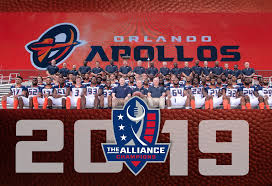Super Bowl Secrets: What You Didn’t Know!

Super Bowl Secrets: What You Didn't Know!
The Super Bowl is more than just a championship game; it has become a cultural phenomenon that transcends the boundaries of sports. Every year, millions of people look forward to this highly anticipated event, whether they are die-hard football fans or casual viewers. But beyond the glitz and glamor of the halftime shows and the elaborate commercials, lies an intricate history filled with unexpected twists, memorable moments, and surprising facts. In this blog post, we will delve deep into the world of the Super Bowl, exploring its history, notable teams, memorable moments, cultural impact, and its status as a major commercial event. You may be surprised by what you learn about this iconic celebration of American football.
Introduction to the Super Bowl
The Super Bowl serves as the annual championship game of the National Football League (NFL), where the champions of the league’s two conferences, the American Football Conference (AFC) and the National Football Conference (NFC), face off for the coveted Vince Lombardi Trophy. Since its inception, the Super Bowl has evolved from a mere w88 sporting event into a spectacle that encompasses entertainment, advertising, and social gatherings.
The first SB took place in January 1967, and over the years, it has transformed into one of the most-watched television events in the world. The pageantry surrounding the event includes celebrity endorsements, extravagant halftime performances, and even the infamous “Super Bowl parties” that have become a staple of American culture. But before diving into the various components that make up the Super Bowl, let’s take a look back at its rich history.
History of the Super Bowl
To fully understand the significance of the Super Bowl in today’s society, one must explore its origins. The inaugural game was held on January 15, 1967, and featured the Green Bay Packers against the Kansas City Chiefs. What many may not know is that this game was originally called the “AFL-NFL World Championship Game.” It wasn’t until the third edition in 1969 that the name “Super Bowl” was officially adopted.
The formation of the SB came as a result of a merger between the NFL and the American Football League (AFL). This historic agreement allowed for a unified championship that would showcase the best talent from both leagues, ultimately leading to the competitive nature of today’s NFL. The significance of this merger cannot be understated, as it laid the groundwork for a national pastime that continues to flourish today.
Furthermore, the Super Bowl has undergone various changes throughout its existence, adapting to the evolving nature of American society. From the early days of simple live broadcasts to the multi-million dollar productions we see now, the Super Bowl’s history is a testament to both the growth of the sport and the evolution of television.
The Evolution of the Game
As the SB gained traction, so did the level of competition and fanfare surrounding it. The early years were characterized by relatively low viewership, but by the late 1970s and early 1980s, the game began to attract larger audiences.
In 1978, a turning point occurred when the NFL started to embrace advanced broadcasting techniques, allowing fans to enjoy games in higher quality. This technological leap coincided with the emergence of star players like Joe Montana, Terry Bradshaw, and Walter Payton, who captivated audiences with their exceptional skills on the field.
Additionally, the introduction of instant replay in the NFL during the 1986 season further heightened the drama of the Super Bowl, allowing fans to witness pivotal plays from multiple angles. As a result, the SB began attracting not only hardcore sports fans but also casual viewers captivated by the thrill and excitement of the game.
Conclusion
The Super Bowl stands as a testament to the power of sports to captivate, entertain, and inspire people across the globe. From its humble beginnings to its current status as a cultural event, the Super Bowl has woven itself into the fabric of American society. Through its rich history, notable teams, and unforgettable moments, the Super Bowl transcends the realm of football, impacting sports culture, commerce, and communities alike.







